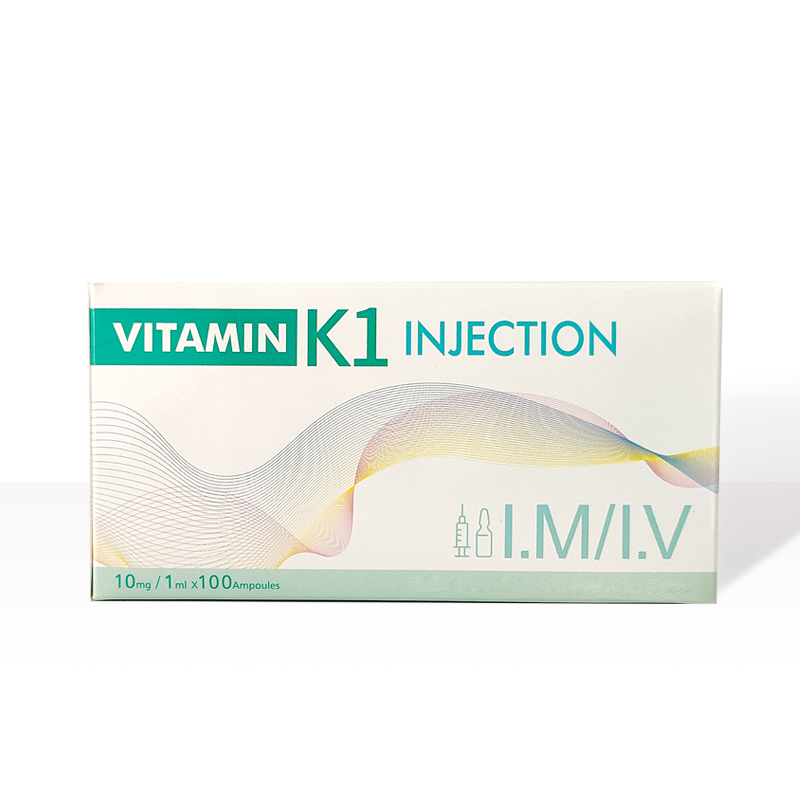
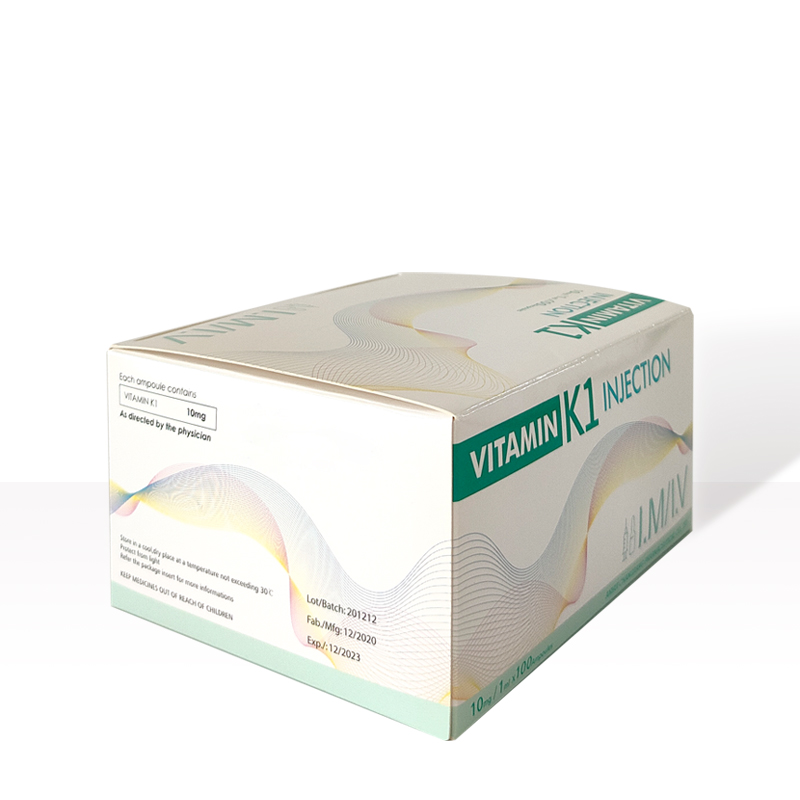
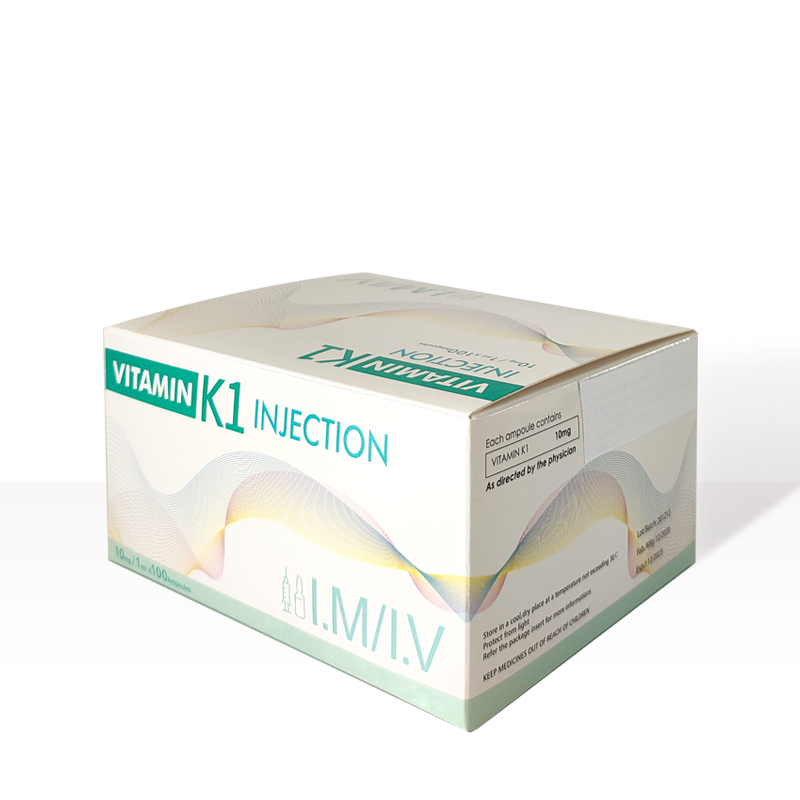
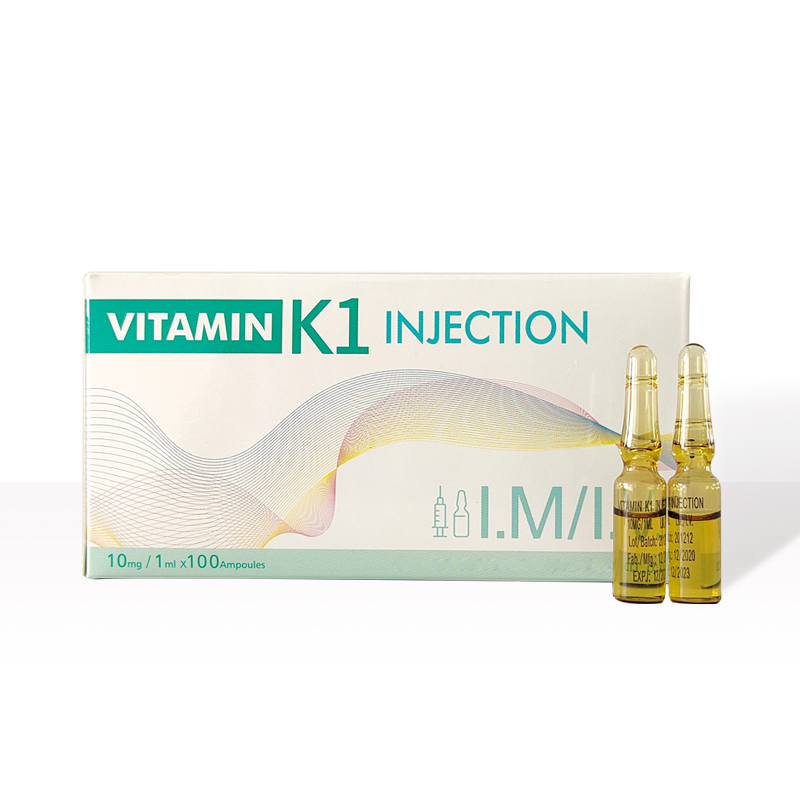
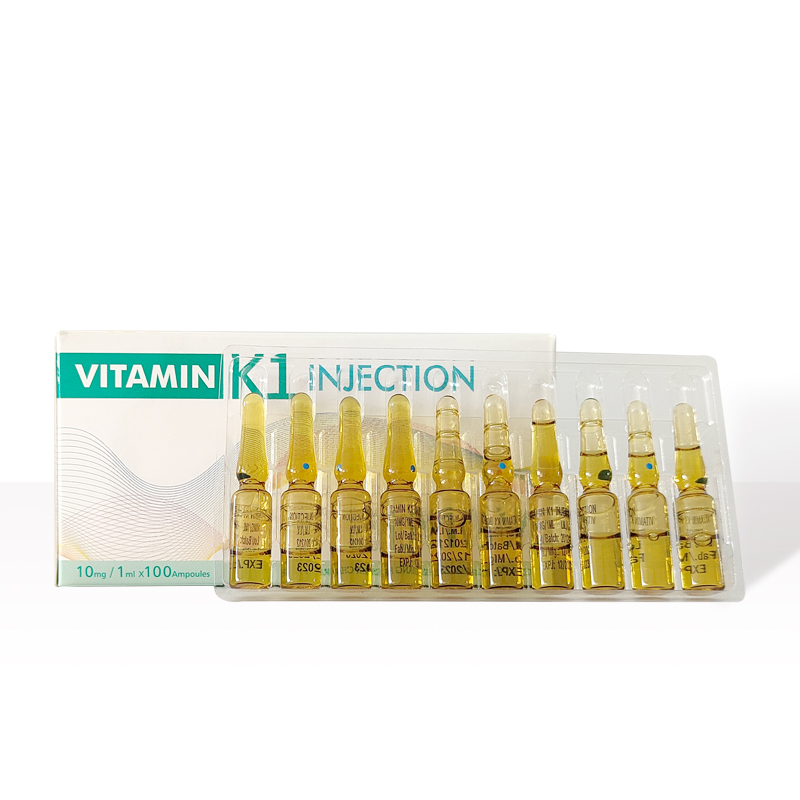
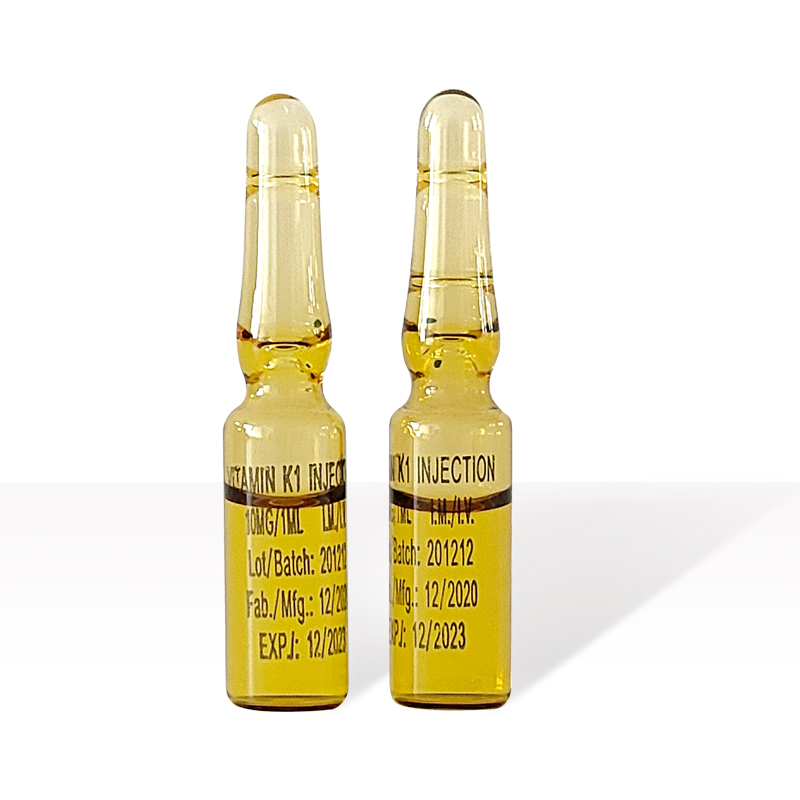
Mechanism of Action
Vitamin K1 (Phytonadione) promotes the hepatic synthesis of clotting factors II, VII, IX, and X, which are essential for blood coagulation. It acts as a cofactor for a microsomal enzyme that catalyzes the post-translational carboxylation of specific glutamic acid residues in inactive hepatic precursors of these clotting factors, converting them into active coagulation factors.
Uses
Vitamin K1 injection is used to:
- Prevent and treat hemorrhagic disease of the newborn: A single intramuscular dose of 0.5 to 1 mg is recommended within one hour of birth.
- Treat anticoagulant-induced prothrombin deficiency: Initial doses range from 2.5 to 10 mg, and up to 25 mg or more may be required in rare cases.
- Manage other causes of hypoprothrombinemia: Including those due to antibiotics, salicylates, or other drugs, with doses ranging from 2.5 to 25 mg.
Dosage and Administration
- Route of Administration: Preferably subcutaneous or intramuscular. Intravenous administration should be slow, not exceeding 1 mg per minute.
- Dilution: Can be diluted with preservative-free 0.9% Sodium Chloride Injection, 5% Dextrose Injection, or 5% Dextrose and Sodium Chloride Injection.
- Newborns:Prophylaxis: 0.5 to 1 mg IM within one hour of birth.Treatment: 1 mg SC or IM, with higher doses if the mother was on oral anticoagulants.
- Adults:Anticoagulant-induced deficiency: Initial dose of 2.5 to 10 mg, up to 25 mg or more in rare cases.Other causes: 2.5 to 25 mg, depending on the severity.
Storage
Vitamin K1 injection should be stored at temperatures below 25°C, protected from light.
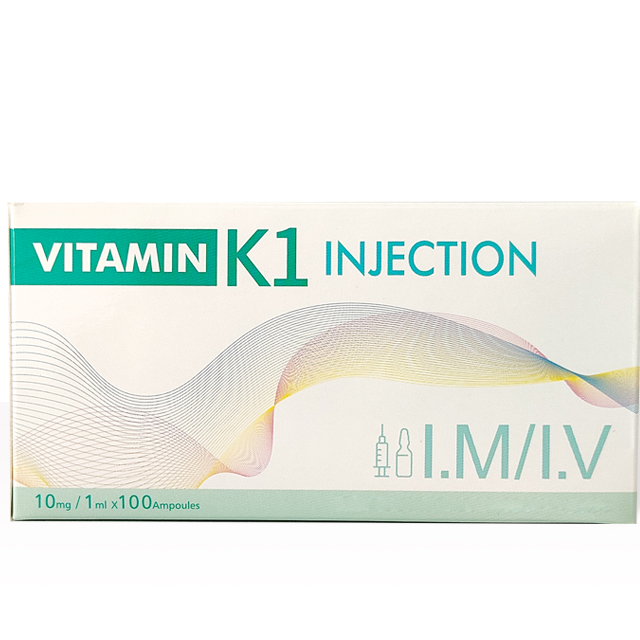








 2006-2025 上海博華國際展覽有限公司版權(quán)所有(保留一切權(quán)利)
滬ICP備05034851號-57
2006-2025 上海博華國際展覽有限公司版權(quán)所有(保留一切權(quán)利)
滬ICP備05034851號-57